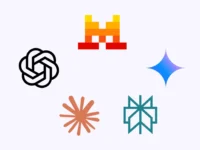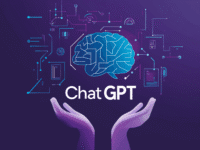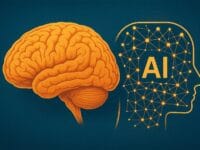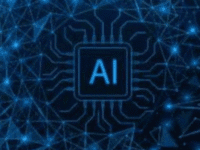Publié : 30 September 2025
Actualisé : 8 hours ago
Fiabilité : ✓ Sources vérifiées
Notre équipe met à jour cet article dès que de nouvelles informations sont disponibles.
📋 Sommaire
📋 Sommaire
Microsoft co-founder Bill Gates recently expressed significant reservations about the expected capabilities of GPT-5, the next major iteration of OpenAI. His prediction of a “disappointment” for this artificial intelligence model contrasts sharply with the bold claims of OpenAI CEO Sam Altman, who portrayed GPT-5 as potentially smarter than the brightest human. Gates’ statements reignite the debate on the current and future limitations of large language models (LLMs), casting a shadow over the prospects of ChatGPT and other applications based on this technology
💎 The arguments for caution
Gates, known for his pragmatic approach to technology, bases his skepticism on several critical observations. He points out that, despite meteoric advances, current LLMs, and potentially GPT-5, still struggle to demonstrate any real capacity for abstract reasoning , deep contextual understanding or learning from minimal data, characteristics intrinsic to human intelligence. He insists that the ability to generate fluent, relevant text does not necessarily translate into true intelligence or infallible reliability. His critique also focuses on the persistence of “hallucinations “, where AI generates factually incorrect but convincingly presented information, as well as the challenges posed by the astronomical training costs and energy consumption of ever-larger models. For Gates, the qualitative leap promised by Altman could be more of an incremental improvement than a fundamental revolution
💎 The Generative AI Landscape and Issues
The generative AI industry is booming, with OpenAI at the forefront thanks to its GPT models and flagship product, ChatGPT. Microsoft’s massive investment in OpenAI testifies to the strategic importance of this technology. However, the widespread optimism around AI capabilities is sometimes tempered by more cautious voices, such as Gates’, who call for a realistic assessment of progress. The rhetoric around GPT-5, with promises of “superior” intelligence, has created immense expectation. This potential mismatch between marketing aspirations and technical reality is a recurring theme in the history of artificial intelligence, where “AI winters” have often followed periods of unwarranted euphoria. Gates’ position suggests a period of recalibrating expectations:
“Artificial intelligence has the potential to transform many fields, but we must remain vigilant about distinguishing between improving technical performance and achieving true understanding or awareness. Raw power is not wisdom.”-Dr. Anya Sharma, AI Ethics Specialist
💎 Implications for ChatGPT and the Future of AI
If GPT-5 turns out not to be the promised revolution, the repercussions could be significant for products like ChatGPT. ChatGPT’s appeal is largely based on the perception of its intelligence and versatility. A perception of stagnation or insufficient progress in the underlying model could erode the confidence of users and companies investing heavily in the integration of these technologies. It could also redirect R&D efforts towards more specialized or “narrow” AI, capable of excelling in specific domains with superior reliability, rather than pursuing the quest for omniscient “artificial general intelligence” (AGI). Investment could shift towards more targeted AI solutions that solve real-world problems with performance guarantees. Gates’ vision, while potentially alarmist to some, can be seen as a call for caution and focus on real-world problems that AI can reliably solve, rather than getting carried away by grandiose promises that may not materialize in the short to medium term. It’s an invitation to anchor AI developments in a sustainable technical and economic reality
Bill Gates’ commentary on GPT-5, while potentially controversial, serves as a necessary wake-up call in an ecosystem often dominated by hyperbole. It underlines the importance of distinguishing between impressive technical advances and the achievement of true human-like intelligence. The future of AI will depend not only on the ability to create ever-bigger models, but also on the wisdom to deploy them ethically, reliably and pragmatically, recognizing their current limitations






















0 Comments